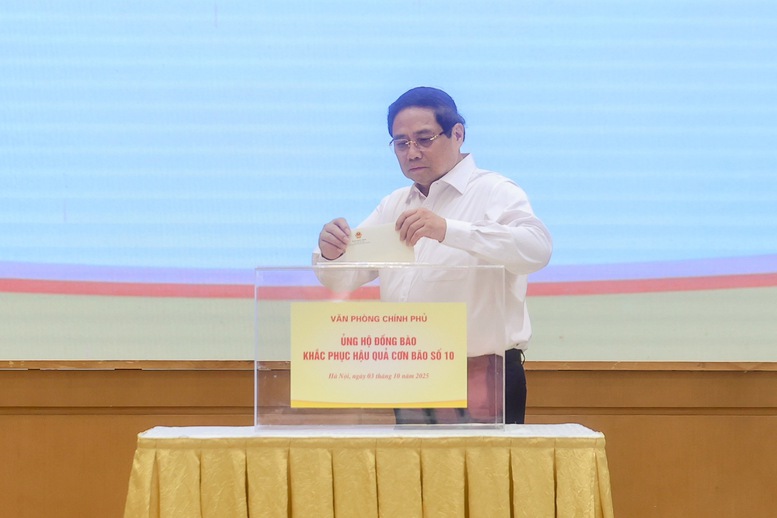HCMC – Prime Minister Pham Minh Chinh and senior government officials have contributed part of their salaries to support residents hit by Storm Bualoi and subsequent floods, which took a toll on northern and central Vietnam.
At a fundraising event in Hanoi City on October 3, the prime minister, deputy prime ministers, and staff of the Government Office donated at least one day’s salary each. The event raised VND500 million.
Vietnam was struck by four storms in September, with Storm Bualoi causing the most severe impact. Heavy rains, flash floods, and landslides triggered widespread flooding, damaging homes, schools, hospitals, farmland, and infrastructure across the northern and north-central regions.
Preliminary reports showed 65 people dead or missing, 164 injured, and more than 172,000 houses damaged as of 8 p.m. on October 2. Nearly 1,400 schools, 145 healthcare facilities, and over 100,000 hectares of crops and aquaculture areas were destroyed. Economic losses are estimated at more than VND15 trillion.
On October 2, the prime minister signed a decision allocating over VND2.5 trillion from the 2025 central budget contingency fund to 15 storm-hit localities, including Nghe An, Ha Tinh, Thanh Hoa, Quang Tri provinces, and Hue City. The funding will be used to repair dikes, reservoirs, disaster prevention facilities, and other essential infrastructure, as well as to support affected households and resettle residents in disaster-prone areas.
The Government has issued nine urgent directives to mobilize resources and speed up recovery efforts. Prime Minister Chinh and deputy prime ministers have led inspection teams to affected areas to oversee relief operations.
The Ministry of Finance and provincial authorities are required to ensure transparency and accountability in the use of central budget support. Local governments must complete disbursement by December 31, 2026, and submit detailed reports on damage and recovery costs.
Vietnam may face more storms and floods in the coming weeks. The prime minister called on ministries, local governments, businesses, and citizens to continue contributing resources to help disaster-hit communities recover and restore livelihoods as quickly as possible.









